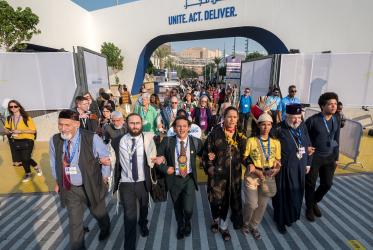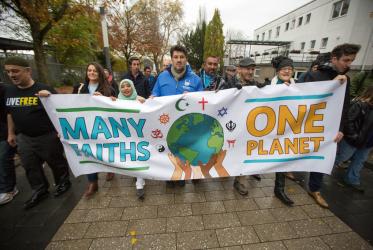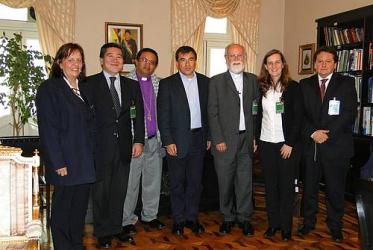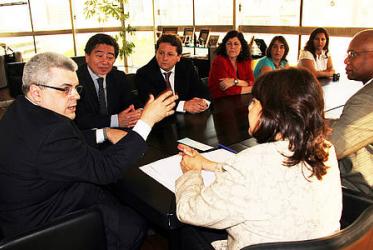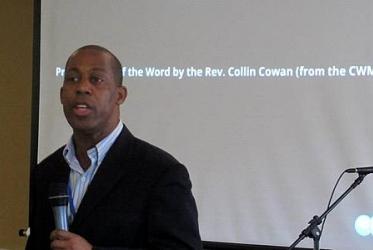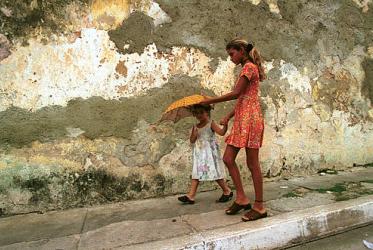Displaying 1 - 17 of 17
WCC submits comments on draft UN “Pact for the Future”
12 February 2024
COP 23 “debriefing” brings faith and ethical perspectives
23 January 2018
Grand Imam calls for collaboration against violence and poverty
06 October 2016
Tveit offers input at religion and development meeting
03 October 2016
Statement on global economy delivered to Bolivia
15 January 2013
WCC delegation in Doha advocates for climate justice
05 December 2012
Building peace in solidarity with the poor
12 September 2011
Towards an eco-theology
30 March 2011
Wars in Sierra Leone and Liberia are over, peace-building is not
12 November 2008

